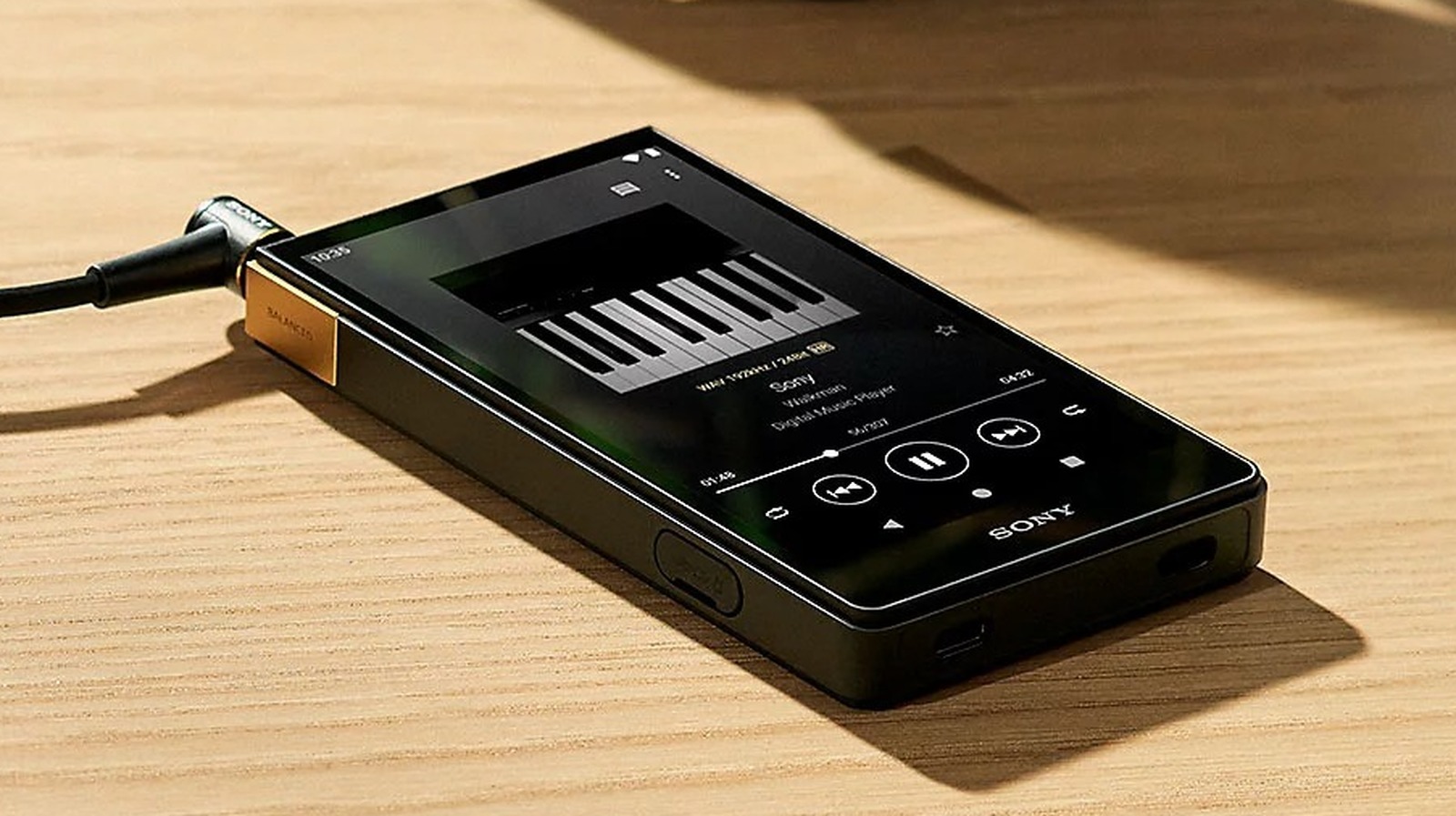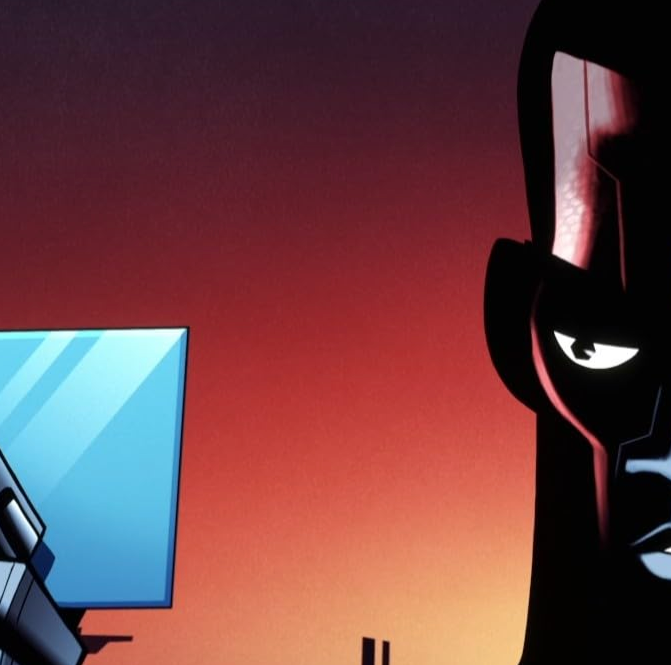I think they would have been a lot better off if they had included a fully functional phone. Who wants to carry around TWO bricks for slightly better audio?
I think the real missed opportunity is that they didn’t create a super hi-fi wireless headphone protocol and absolutely best-ever wireless headphones sell them together with the walkman.
I’m the audience for this. I’ve bought previous android portable standalone players and it being a phone is actually a negative.
There are already plenty of good smartphone dacs so there’s no need to make a super high end battery chugging, chunky phone for a niche audience, when most people are just going to use Bluetooth headsets anyways and have a good experience doing so.
Im not just carrying these things around like a phone because the types of headphones I’ve run with these devices are not the type that I would bring with me on a bus or to the store. Portability really doesn’t matter to the target audience of these.
I pull my standalone player out when I want to sit in front of my my garden and listen to an album all the way through. Getting a call or a notification would kill that for me.
They did. It’s called LDAC. Many would also agree that they make the best headphones and earbuds, I swear by their WH1000s and WF1000s
I made the awful decision to go with Bowers & Wilkins over the Sonys. They sound okay, but the design is absolute garbage. Next time it’s Sony.
I swear by their WH1000s and WF1000s
Its a good thing lots of people do, cause they make my Xperia purchases $250 cheaper. The freebie buds go right to eBay.
Hell, even the ability to connect multiples. Instant silent rave box
Because I imagine it’s for old people sitting around their house
- Separate batteries. Using a device for music and a standard phone drains from the same battery. You could carry a power brick, but then you’re carrying two bricks for worse audio.
- No camera. Certain work assignments won’t allow me to bring a device with a camera into those zones. Or, if I do, the transition process is so intrusive that it’s not worth it.
Those are the only unique characteristics. You can compensate other differences on a phone like adding an additional DAC and/or amp.
tldr; it’s $900 and has very fancy audio equipment.
Well… it won’t matter once you listen to music on them with your shitty 20 USD headphones.
No no, I use the beats fit pro that are recommended in the article underneath. They actually suck hard, but the review seems to think they’re the second coming. So take all this with a grain of salt.
Yea, I have found by far the biggest effect for me (and I have to imagine most people) is the speakers / headphones, not the digital processing or even the audio converters.
headphones or speakers can’t add the detail that mp3 (or streaming in whatever format) eliminates. Compare a CD and mp3 of the same track with a decent headphone (or a speaker) and you will hear that compression changes sounds.
but it all depends on what kind of music you listen to. For some of today’s music even laptop speakers are enough 🤷
Nah come on, bro. You and I both know laptop speakers are trash. Good headphones are a must. I’ve heard so many sounds I’ve never noticed before with good headphones.
yes 😁 yes, but this new vocoder popshit i’ve been hearing from bluetooth boxes in backpacks is good enough for laptop speakers
My point is just that most headphones that are cheap can’t reproduce MP3 quality, so until you get good enough headphones to hear the difference, getting a FLAC of the same song isn’t going to really be noticable.
agreed
It also won’t matter once you take a step outside; slightest ambient noise is enough to kill most of the advantages a high-end source provides.
I feel like the author is pretty clueless when it comes to audiophile grade digital audio players. They’re remarking about the $900 price tag like it’s some kind of high water mark for a device when there are Astell & Kern and iBasso units that cost 2-3x that.
The Sony Walkman devices are consistently well-rated. This is going to be a good player for those looking for a dedicated music device.
Yeah “Costs more than you think” no I think it costs about what I expected for a lossless player. DACs are a feature these days.
I own this.
I’m guessing the author doesn’t have this issue, but the model sold in the US has a volume
limiterlimit on them. My daily headphones aren’t easy to drive, so this was a concern I have that many other people might not care about.I ended up having to import mine to get a device that doesn’t have this enforced.
Edit: Sorry I was clumsy with my words. It’s a limit on volume, since it’s an option for high gain.
I look forward to Techmoan blowing his money on one of these to do a video.
If we had lemmy money I’d bet against that. I can’t see him bying that.
oh boy everyone will argue about audio specifications again. For the record standard MP3 is fine and is perfectly representative of the recording it did within the bandwidth of human hearing
This feature ensures the NW-ZX707 can transform standard MP3 or PCM audio to the ultra-high frequency 11.2 Mhz DSD audio stream.
That doesn’t make a lot of sense to me.
-
Humans can only hear up to about 20kHz, so you’re not getting much benefit above about double that.
-
Even assuming that humans could hear frequencies hundreds of times higher, audio isn’t generally available sampled at 11.2 Mhz. If you’re getting music, the recording and audio engineering work, the microphones, etc, aren’t designed to accurately capture data at high frequencies.
-
Even assuming that none of that were the case, the audio engineer and artists weren’t trying to make audio that sounds good at that frequency (which they can’t hear either). The music doesn’t intrinsically have some aesthetically-pleasing quality that you can extract; they were the ones who added it, and they did that via making judgments using their own senses, which can’t hear this.
-
Even aside from that, it doesn’t look like this comes with headphones. Whatever you are plugging into this has to induce vibration in the air for it to make it to your ears, and probably does not have a meaningful frequency response at that frequency.
The NW-ZX707 also gets Sony’s proprietary digital music processing technologies, including the DSEE Ultimate technology, developed in-house to restore compressed music files to the quality of a CD by interpolating sound algorithms.
And it makes even less sense if your starting audio has actually thrown out data in frequencies that humans can hear by using lossy compression there, even if we aren’t terribly sensitive to those.
MHz refers to the samples per second, not the pitch. CD audio for example is 16-bit/44.1kHz. What that means is there are 16-bits of sampling (audio) taken 44,100 times per second. DSD on the other hand is 1-bit samples taken 11.2 million times per second. What that translates to is a digital wave that looks a lot closer to an analog wave than a CD does. It has nothing to do with the frequency of listening in this case.
You should also check this out: https://www.youtube.com/watch?v=cD7YFUYLpDc
I think this article covers it more succinctly https://en.wikipedia.org/wiki/Nyquist%E2%80%93Shannon_sampling_theorem
edit:
also relevant: https://en.wikipedia.org/wiki/Delta-sigma_modulation#Here is an alternative Piped link(s): https://piped.video/watch?v=cD7YFUYLpDc
https://piped.video/watch?v=cD7YFUYLpDc
Piped is a privacy-respecting open-source alternative frontend to YouTube.
I’m open-source, check me out at GitHub.
Yeah the entire article smells like gold plated HDMI cables from Monster, as if that somehow improves the quality of digital signals.
Sony has judiciously used gold across the internals of the NW-ZX707, including its solder and reflow solder elements, to further improve sound localization.
Gold has a higher resistivity than copper. Resistance adds noise. It’s probably just for corrosion resistance.
Another reason audiophiles have come to appreciate the NW-ZX707 is something called the vinyl processor that lends the unmistakable character of vinyl discs back to their digital tracks.
So they further distort the sound to replicate lower quality equipment? They’re definitely not making it sound more like the original by introducing vinyl artifacts.
This is some serious hobbyist pricing bait, but I can’t judge since I’ve got my own dumb expensive hobbies.
This feature ensures the NW-ZX707 can transform standard MP3 or PCM audio to the ultra-high frequency 11.2 Mhz DSD audio stream.
I think the article is just incorrect. Sony probably means it can just decide .dsf files. And you are confusing 1 bit DSD with 16 bit PCM. The most common DSD format is DSD64 2.8Mhz which is equivalent to 16 bit /176khz, 24 bit/117khz, or 32 bit/ 88.2khz. And the microphones and instruments do work at these high frequencies.
No, the product page mentions the “DSD Remastering Engine”, which says the same thing as the article. They probably just mean they’re using a 1-bit DAC, and are trying to pass that off as a selling point. Although the article did lose the “1-bit” part.
the benefit of sampling above 20khz is that you can even out the signal over a period of time which will make it more accurate for frequencies up to 20khz. you will get a noisy signal but all the noise is in frequencies you can’t hear.
you also need to consider how the voltage is generated. in general there are limits regarding how quickly can voltage surge. e.g. you can’t reproduce a square wave properly in most cases after amplification. in the end this makes dsd much less relevant.
you also need to consider that the reproduction is not perfect and neither is the recording. e.g. a square wave will not be captured properly
edit: I forgot to mention that the slew rate limit has a parallel on the speaker/headphone membrane but it’s much worse than the amp since it’s a physical object with momentum.
Let me add that I don’t think that we are at the end-all-and-be-all of audio. I can hypothetically imagine things that might be done if one threw more money at audio playback that would create a better experience than one can get today.
-
When you hear audio from a given point, some of how you detect the location of an audio source is due to the effect on it hitting your ears, which are of a distinct shape, which means that what’s actually hitting your inner ear is slightly unique to an individual person Currently, if you’re listening to a static audio file, it’s the same for everyone. One could hypothetically ship hardware which fits inside the ear of and can build an audio model for the ear of a given individual to make audio which reflects their specific ears. Then audio could be played back that sounds as if it’s actually coming from a given point in space relative to someone’s ears. That’s not a drop-in improvement for existing audio, because you’d need to have 3D location information available about the individual sources in the audio. But if audio companies wanted to sell a fancier experience for audio that does have that information, they could leverage that.
-
For decades, audio playback devices have tried to produce visual effects that synchronize with music. They haven’t done a phenomenal job, at even basic stuff like beat detection, in my opinion, and so clubs and the like have people that have to rig up DMX512 gear with manually-created annotations to have effects happen at a given point. Audio tracks today don’t have a standard format for annotations; if I go buy an album, it doesn’t come with something like that. One could produce a standard for it and rig up various gear, like strobes or colored light or even do this in VR, to stimulate the other senses in time with the audio.
-
I suspect that very few people listen to audio in an environment where they can hear absolutely zero detectable background sound when they don’t have their audio playing. You can get decent passive sound cancellation devices, but they only go so far; even good passive sound cancellation headphones are something that one can probably hear fairly quiet sound through. Right now, active sound cancellation devices are being worked on, but that doesn’t get one to the point of inaudibility either, and I haven’t seen anything that does both good active and passive cancellation, so using active noise cancellation means giving up good passive noise cancellation.
My point is that I don’t think that there are zero remaining areas for audio hardware companies to explore to try to create better experiences. I just don’t think that playing audio hundreds of times above the frequencies that humans can hear is really a fantastic area to be banging on.
-
-
Interesting read. Honestly it sounds cool with all the specs underneath the shell. But obviously it’s just not worth unless you have the ear for it. In other words, you’d have to be a sound engineer to really get the most out of something like this.
I have hard time believing that anybody can hear difference with this and good quality phone.
I associate audiophiles for people that think they can hear difference when they pay extra but actually don’t when blind-tested. This seems to be perfect product for them.
I am very upset that I can’t find good midrange players. Either cheap crap or hyper-expensive things like this. My last one broke and I don’t buy the replacement parts solely because I still have hope of finding an appropriate one. For now, I use a perma-offline, degoogled smartphone for this (because I heavily prefer not to use a smartphone in daily life normally), but using a relatively big and heavy brick for a player is VERY inconvenient if you’re used to a small lightweight device.
I would love to get this but that price is a bit too steep
I really hate this kind of headlines
It’s rampant click bait. I try not to reward the behavior with clicks, but sometimes I’m genuinely interested in the topic. This is not one of those times.
From the first line:
We may receive a commission on purchases made from links.
and when I copied that string, they added this to my clipboard:
Read More: https://www.slashgear.com/1347620/new-sony-walkman-cost-price/This is just an ad from a garbage blog.
The land of diminishing returns…
Sony is taking advantage of audiophiles’ desire to compulsively spend more money on better measurements with imperceptible improvements. Nothing wrong with that - most audiophiles are self-aware and know that it’s really higher prices that make music sound better. It will be interesting to see what audiophiles say about these new Walkmans.
There are already similarly priced and cheaper alternatives, including a $350 option by Sony, and $800-$1500 options by Astell & Kern. Stand-alone music players aren’t extinct as this writer seems to think.
As an audiophile I would never spend this much because I also know that getting transparent audio is dirt cheap these days and these high end devices often don’t measure well in ways that do matter, for example their output impedance.
There’s a business phone switch owned by many of our customers for which licenses for file-based music-on-hold are no longer available from the manufacturer. An old iPod / Nomad / Zune / etc. fits the bill to connect to its built-in, no-additional-license-required music-on-hold audio port perfectly. It even comes with its own built-in UPS.
It’s basically in the same category as Sony’s robot dog - an electronic device no one will pay for unless they have more money than they know what to do with.














